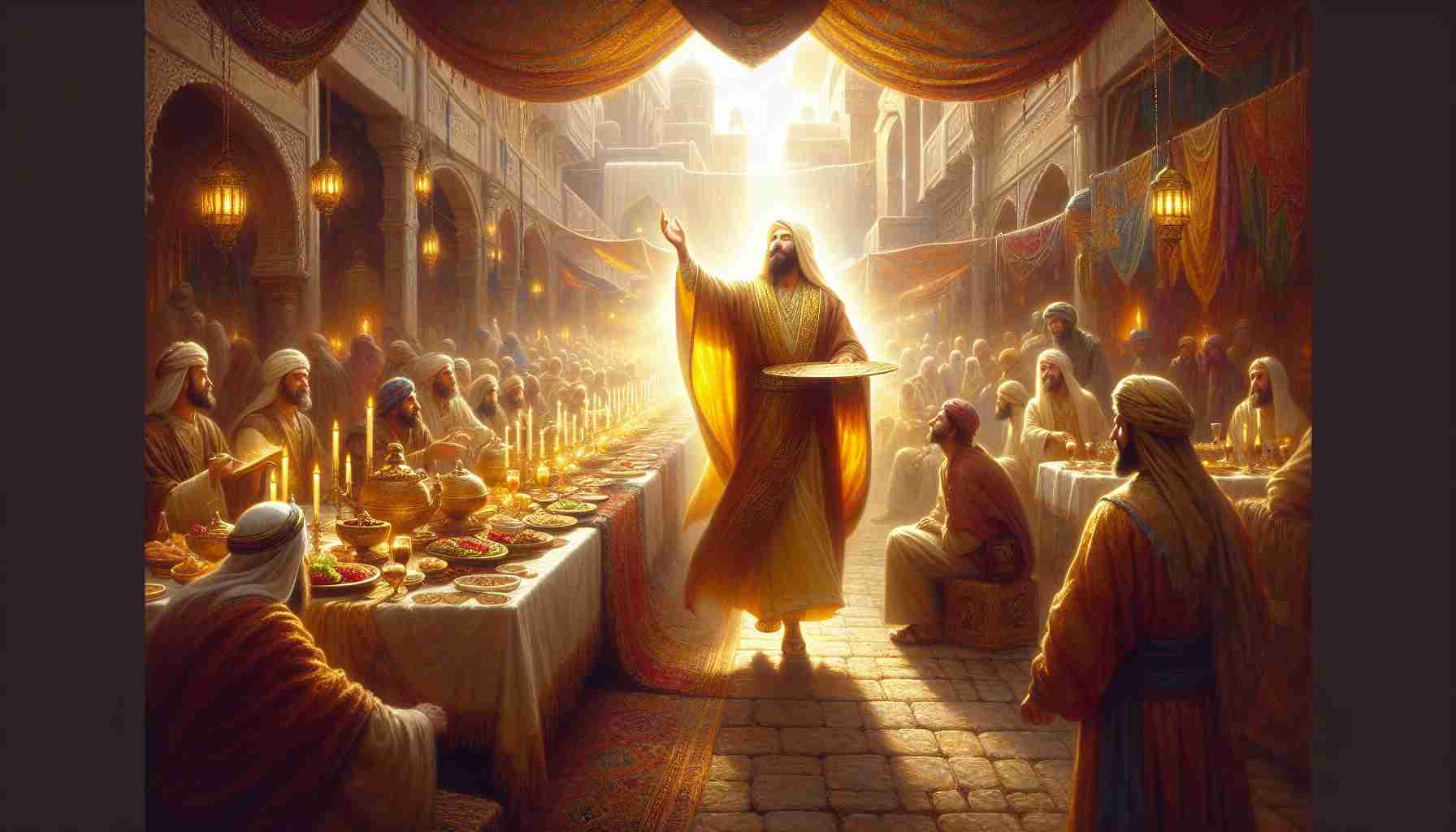

The sun was high over the crowded streets of Jericho, its heat pressing down like the taxes the Romans demanded from everyone, regardless of hunger or heartache. Eli, a sandal repairer by trade, leaned against the dusty wall of his one-room home, his hands raw from stitching and his stomach aching from another skipped lunch. Business had been slow—who could afford new sandals when temple taxes loomed? His corner of the city, tucked near the market’s refuse carts, stank of fish guts and forgotten people. Eli was one of them—a man too poor to pay full offering, too unclean by Pharisee standards to keep up with all the purity rituals.
He had once dreamed of being a scribe, of reading the sacred scrolls with perfect posture beside Jerusalem's golden courtyards. But when his father died and debts swallowed their small land, Eli buried the dream under cracked leather and disillusionment.
That morning, while he patched a split heel, word spread like flame lit on dry grass—a rabbi was inviting people to feast. Not just the spiritual elite with finely hemmed robes and untouched hands. No, this rabbi sent his followers into the alleys, calling out to commoners, even those the priests avoided with veiled disgust.
Eli laughed bitterly when a boy urged him, “He said the poor, the crippled, the cast out are welcome!”
“Stories,” Eli grunted, waving the child off. “No one calls beggars to banquets. Not unless they want someone to mock.”
Still, hunger gnawed. Not just in his belly—but deeper, in that splintered place tired of waiting to matter. He stood, curious enough to follow the whispers and shouting feet toward the courtyard outside a large house on the edge of town.
There, people milled—some in rags, others limping or blind. A servant pushed a man on a mat, and a woman with a withered arm clutched bread as if it were treasure.
And then —He turned.
Across the crowd, the rabbi's eyes met Eli's. He wasn’t noble-looking, but something in Him quieted the chaos around them. As if the wind paused to listen.
“You’re welcome here,” the rabbi said, simply. Not loudly, not like a preacher booming for applause. Just…sure.
Eli’s throat closed. “Why?” he asked, stepping closer. “Why call me?”
“Because those invited first refused to come,” the rabbi said, glancing toward the hills as if the rich, the priestly, the proud lingered there, clutching excuses. “And the feast is ready—but not yet full.”
Eli’s hands trembled. Not from cold. From the weight of being wanted.
He stepped toward the table. Food like he hadn’t smelled since childhood filled clay dishes. A woman smiled and made room for him. Another man passed him olives.
He sat—not as an outsider, but a guest. Seen. Chosen.
And for the first time in years, he ate without shame.
The sun was high over the crowded streets of Jericho, its heat pressing down like the taxes the Romans demanded from everyone, regardless of hunger or heartache. Eli, a sandal repairer by trade, leaned against the dusty wall of his one-room home, his hands raw from stitching and his stomach aching from another skipped lunch. Business had been slow—who could afford new sandals when temple taxes loomed? His corner of the city, tucked near the market’s refuse carts, stank of fish guts and forgotten people. Eli was one of them—a man too poor to pay full offering, too unclean by Pharisee standards to keep up with all the purity rituals.
He had once dreamed of being a scribe, of reading the sacred scrolls with perfect posture beside Jerusalem's golden courtyards. But when his father died and debts swallowed their small land, Eli buried the dream under cracked leather and disillusionment.
That morning, while he patched a split heel, word spread like flame lit on dry grass—a rabbi was inviting people to feast. Not just the spiritual elite with finely hemmed robes and untouched hands. No, this rabbi sent his followers into the alleys, calling out to commoners, even those the priests avoided with veiled disgust.
Eli laughed bitterly when a boy urged him, “He said the poor, the crippled, the cast out are welcome!”
“Stories,” Eli grunted, waving the child off. “No one calls beggars to banquets. Not unless they want someone to mock.”
Still, hunger gnawed. Not just in his belly—but deeper, in that splintered place tired of waiting to matter. He stood, curious enough to follow the whispers and shouting feet toward the courtyard outside a large house on the edge of town.
There, people milled—some in rags, others limping or blind. A servant pushed a man on a mat, and a woman with a withered arm clutched bread as if it were treasure.
And then —He turned.
Across the crowd, the rabbi's eyes met Eli's. He wasn’t noble-looking, but something in Him quieted the chaos around them. As if the wind paused to listen.
“You’re welcome here,” the rabbi said, simply. Not loudly, not like a preacher booming for applause. Just…sure.
Eli’s throat closed. “Why?” he asked, stepping closer. “Why call me?”
“Because those invited first refused to come,” the rabbi said, glancing toward the hills as if the rich, the priestly, the proud lingered there, clutching excuses. “And the feast is ready—but not yet full.”
Eli’s hands trembled. Not from cold. From the weight of being wanted.
He stepped toward the table. Food like he hadn’t smelled since childhood filled clay dishes. A woman smiled and made room for him. Another man passed him olives.
He sat—not as an outsider, but a guest. Seen. Chosen.
And for the first time in years, he ate without shame.